Windows User takes high quality content from expert design and editorial teams to produce the ultimate Windows 11 magazine. Windows User Magazine brings you the very best reviews and technical help for your Windows powered desktop, tablet and laptop. This is the publication you will need to keep on top of the must know software and hardware information and technical help from our team of Windows experts. If you use Windows you need to click subscribe. 100% unofficial.
Windows USER
Digital Security in Numbers • Information regarding cyber security doesn’t always have to be technically heavy. In fact, to make it easier to digest, and to just show you how virulent and bitterly hostile computer-borne security threats are, here’s a collection of statistics to give you the heebie-jeebies; all the more reason then to keep this manual close to hand.
A Secure Start//
Types of Security Risk • There are more security risks for your computer than just the common, run-of-the-mill virus. The amount of digital use the average person has over the course of a week has increased significantly in just a few years, and with it comes a legion of security related issues.
Hackers and You • We’re probably all familiar with the term ‘hacker’, and what it suggests, but do we really know what a hacker wants from us? More to the point, how are we perceived in the eyes of a hacker? Let’s have a look at what the modern hacker wants from the average user.
Social Engineering • With the rise of wider forms of communication, through social media and so on, comes a new wave of threats called social engineering. There are many forms of social engineering, so let’s have a look at what you’re up against, and how to combat it.
Ransomware: How it Works • The first instance of an extortion attack is credited to Joseph Popp back in 1989. Since then the frequency, delivery and scale of ransomware attacks has increased significantly; so what is ransomware and how does it work?
The Virus Top Ten • Viruses are constantly evolving thanks to more ingenious methods of delivery and due to the developers and hackers tweaking their code to sniff out operating system vulnerabilities. It’s difficult to say what the next big virus will be but some scary ones have already appeared on the Internet.
Phishing, Vishing & Smishing • It’s tempting to think we’ve made up the words Phishing, Vishing and Smishing but in actual fact they’re all forms of social engineering scams. Whilst we’ve covered social engineering already, it’s worth looking at these three modern day threats individually.
Pharming • Whilst on the subject of homophones, another recently added word to the long list of security threats is Pharming. Pharming falls within the online fraud layer of security and although in reality it’s been around for as long as web pages have, the methods of deception are continually evolving.
Windows Security • Microsoft is often accused of developing insecure and ‘broken’ operating systems. However, what the Redmond company delivers is an easy to use system that’s as secure as it can be without compromising its use. It’s a difficult balance to maintain and security can suffer in the long run.
Digital Security FAQ • Whilst it’s all fine and well learning about the different security risks you face every time you boot up your computer, often questions can go unanswered. We’ve put together ten popular digital security questions that we hope will help fill in any blanks.
Improving Security//
Be Smart • We’ve looked at some of the many varied ways in which you can be compromised by a digital attacker and some of the ways in which you can help protect yourself. However, it’s often more beneficial to be able to recognise the signs of a digital security issue.
Top Ten Antivirus and Security...
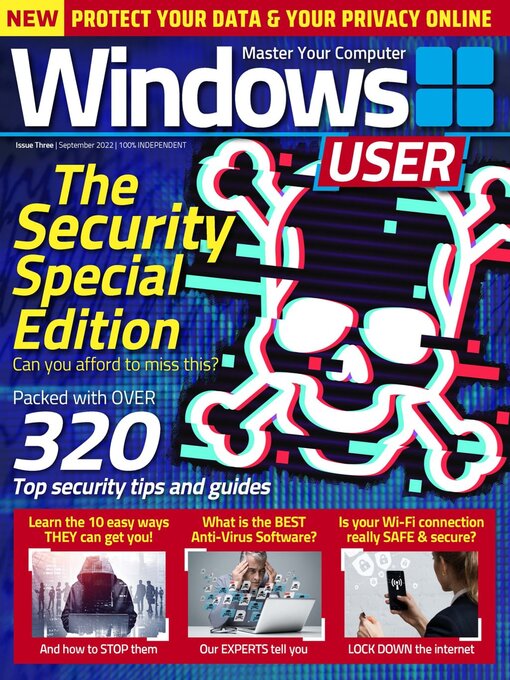
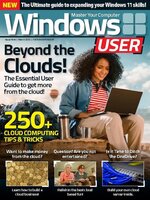 Vol 9 2024
Vol 9 2024
 Vol 8 2023
Vol 8 2023
 Vol 7 2023
Vol 7 2023
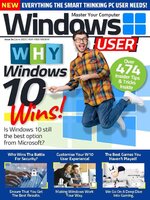 Vol 6 2023
Vol 6 2023
 Vol 5 2023
Vol 5 2023
 Vol 4 2022
Vol 4 2022
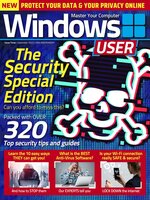 Vol 3 2022
Vol 3 2022
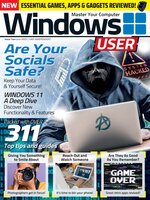 Vol 2 2022
Vol 2 2022
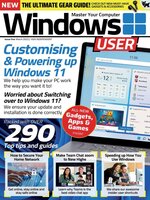 Vol 1 2022
Vol 1 2022